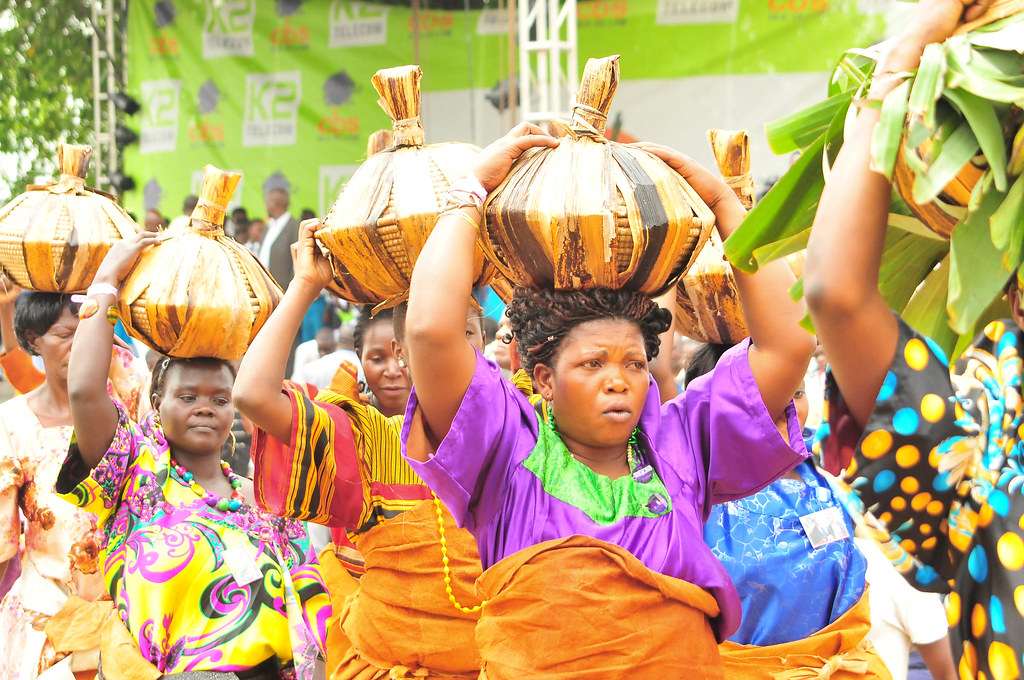Intercultural Exchanges
You can interact with the villagers and discover their ways of living within their cultural environment through Cultural Encounters at Kibale National Park. One of Uganda’s regions with somewhat authentic cultures and customs is Kibale National Park. The Batooro and Bakiga are the two primary tribes that live in the region that is home to Kibale National Park. The Batooro and certain Bakiga tribes live in the southwest of Uganda. The Batooro tribe is one of the civilizations that maintains its customs and traditions to this day. For instance, they still give each newborn kid a pet name, among other customs and conventions.
The Bakiga and Batooro are two distinct and varied cultures, each with its own customs, beliefs, and other elements. As a result, visiting the local communities near Kibale National Park is quite fulfilling. It introduces you to and deepens your awareness of these two Bantu tribes in Africa. You have the opportunity to ask any questions you may have regarding the Bakiga and Batooro tribes in southwest Uganda. For instance, they are more than willing to answer any questions you may have regarding their various traditional rites. Interacting with these cheerful kids and community members is incredibly fascinating.
The majority of the land surrounding Kibale National Park is occupied by the largest tribe, the Batooro. Since the Bakiga in the Kibale area are thought to have only recently come to the area in the 1950s, they are considered a minor tribe in the area. People that live close to Kibale National Park rely on it for their existence and means of subsistence. For instance, they gather materials for weaving, firewood, water, and herbs.
Through the village tours, you may learn about the Batooro and Bakiga people’s way of life in Kibale National Park. You have the chance to tour the local churches, schools, and traditional healers. This indicates that although the locals in Kibale believe in several deities, they do so in distinct ways. You can tour the royal Tooro kingdom palace at Fort Portal as part of the cultural experiences in Kibale National Park. You will also discover a lot about the Tooro clan, especially the stunning “babito” royal women.
During their primate safaris in Kibale National Park, tourists frequently visit the settlements surrounding the park, including Bigodi. The fascinating Bigodi women’s group can be found in the village surrounding Bigodi Swamp. The 40 members of the Bigodi women’s organization are thoroughly immersed in the weaving culture and are driven mostly by a desire to improve the level of living for their families. Members of Bigodi weave baskets create mats, necklaces, and other items out of beads, and they sell a variety of products to guests. In order to generate income, they are also sold to other nations, such as Germany.
The Kibale Association for Rural Environmental Development, or KAFRED, is a community-based organization that was established to support both biodiversity protection and the local populations’ standard of living. KAFRED uses the money raised from the Bigodi and Magombe Swamp activities to help the local villages’ residents live better lives. Because KAFRED educates the locals about the value of Kibale National Park to their way of life and other things, it has also reduced poaching.
You have a fantastic opportunity to see the historical location of “Amabere ga Nyina Mwiru” as part of the cultural exchanges. Although they are actually stalactites and stalagmites in a cave, the entire history of the Mabere Historic Cave may be found in the legend that the locals have shared. Guavas and other fruits are available for purchase from the sellers, some of them are young children who rush to the gardens to collect fruits to sell to tourists they see strolling through their neighborhoods. The kids also understand the value of life.
You shouldn’t miss the opportunity to engage in cultural exchanges in Kibale National Park while in Uganda. You will have a better understanding of African culture through the village walks. You may also decide to sponsor some of the youngsters who can afford to go to school and perhaps provide charitable support to the family of an elderly woman in need.

